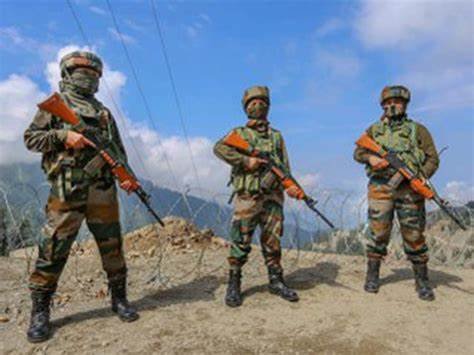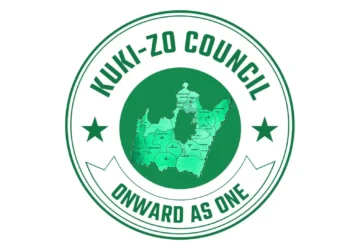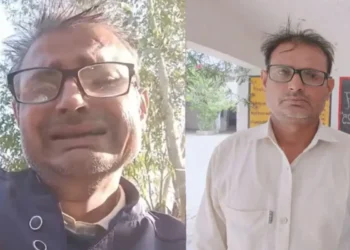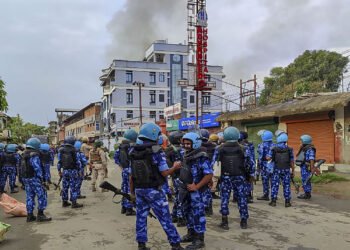The second round of SoO talks between the Home Ministry and Kuki-Zo leaders explores key peace deal aspects amid tribal anxieties over camp relocation.
BY PC Bureau
New Delhi, June 16: The second round of talks between the Ministry of Home Affairs (MHA) and representatives of Kuki-Zo groups under the Suspension of Operations (SoO) agreement was held on Monday, with both sides zeroing in on key issues for further discussion, including the extension of the SoO agreement.
According to informed sources, a key topic during the meeting was the MHA’s proposal to consolidate and relocate SoO-designated camps for logistical efficiency and improved supervision. The proposal, however, met with a counter-suggestion from the Kuki-Zo representatives, who stressed that any relocation must ensure the safety of tribal populations residing nearby.
Under the SoO arrangement, 15 designated camps—seven under KNO and eight under UPF—are spread across Churachandpur, Kangpokpi, and Tengnoupal districts.
The MHA team, led by A.K. Mishra—Advisor to the Home Ministry on Northeast affairs—emphasized that further consultations with ground security agencies were necessary before finalizing any decisions on camp relocation. Discussions reportedly lasted several hours.
READ: Manipur Mourns: COCOMI Urges Unity in Receiving Mortal Remains of Air Crash Victims
Sources indicated that the Kuki-Zo side expressed willingness to consider camp relocation but made it clear that camps should not be shifted far away from tribal residential zones. “We don’t want minor issues to derail larger goals, but we cannot compromise on the security of our people,” said a Kuki-Zo representative.
The dialogue took place in a “cordial and constructive atmosphere,” and both sides are expected to meet again once the Home Ministry receives input from security agencies. “The talks are moving in a positive direction. No date has been fixed for the next round, but it will be soon,” another source said.
Significantly, both sides acknowledged that a reassessment of the SoO ground rules might be necessary, given the shifting political landscape and deteriorating security situation in Manipur. The first round of discussions was held on June 9.
READ: Kuki Inpi Warns of Retaliation Over Buffer Zone “Breach”.
Escalating Demands and Changed Realities
When the SoO agreement was first signed in 2008, the Kuki-Zo armed groups—then largely aligned with Manipur’s political framework—had demanded a territorial council within the state. However, the May 3, 2023 ethnic violence marked a turning point. With hundreds killed and thousands displaced since then, the Kuki-Zo leadership now demands Union Territory status.
“The ground reality has changed entirely. Our demand for a Union Territory is rooted in lived experience and irreversible loss,” said a senior SoO leader. “All aspects of the negotiations—including camp locations—must align with our people’s aspirations.”
Monday’s meeting involved four representatives each from the Kuki National Organisation (KNO) and the United People’s Front (UPF), umbrella groups that represent most of the Kuki-Zo armed outfits.
Opposition from Kuki Chiefs
The Kuki-Zo negotiators are treading cautiously, especially in light of a strongly worded statement issued just two days ago by the Sadar Hills Chiefs’ Association (SAHILCA), which represents traditional Kuki leadership in Kangpokpi district. SAHILCA firmly opposed any proposed relocation of SoO camps, accusing the government of capitulating to Meitei-majority sentiment. The association warned that dismantling or shifting the camps would strike at the very core of tribal identity and threaten the fragile trust underpinning the peace process.
“The peace talks with the Government of India are separate from the current conflict. Linking SoO camps to violence is both baseless and inflammatory,” SAHILCA said in its statement. “These camps were established on ancestral lands with the goal of peace and trust-building.”
The group warned that any attempt to relocate camps, particularly in Kangpokpi, would be perceived as a violation of tribal land rights. “This isn’t just about logistics—it’s about land, dignity, and justice,” the release said.
SAHILCA further accused the state of pursuing a “dangerous policy of majoritarian appeasement” and warned that such actions could erode trust and risk triggering further violence. “The chiefs of Kangpokpi are united in defending our land and legacy through all legitimate means,” it concluded.
The SoO pact, while still operational on the ground, has not been formally renewed in over two years, leaving it in a legal and administrative vacuum. Monday’s discussions may mark the beginning of a more structured and updated framework













